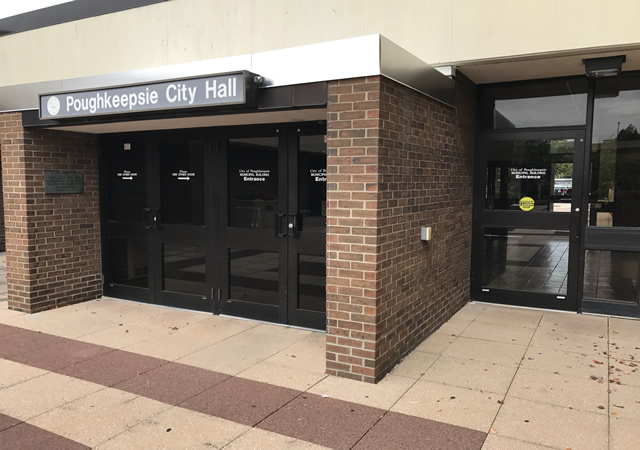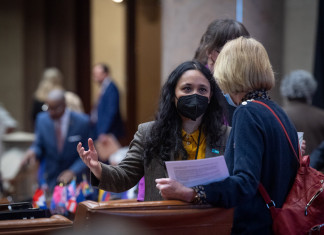Last year, the city of Poughkeepsie deferred its annual sale of real estate tax liens due to COVID-19, affording taxpayers more time to make payment to the city before a lien was placed on their property. Now, the city is holding a public hearing at which residents can weigh in on a proposed local law opting in to the state judicial tax enforcement procedure.
A Common Council public hearing will be held on the matter on Tues., Feb. 16, at 5:30 p.m.
Ward 4 Council Member Sarah Brannen said that after taking office in 2018, she realized a need to tackle the city’s “tax lien problem.” Each year, residents who have not paid their delinquent taxes end up on the tax lien sale list, which means they have until the date of the tax lien sale in December to pay their taxes, plus late fees. If they do not, the city attempts to sell a lien on the property to private investors to recover the delinquent taxes.
“Say you owe $5,000 on your taxes,” Brannen cited as an example. “Your property will appear on the delinquent sale list…if you can’t pay the full $5,000, then somebody can buy the lien. You then have 24 months to pay that private lien holder, plus 12 percent interest per year.”
Brannen described this practice as “the high cost of being poor.”
“If you have money in the bank, you pay your taxes. If you fall behind, you’re hit with late fees and interest…it ends up being predatory and the people who suffer the most tend to be low-income senior citizens and communities of color. There is a disparate impact of this tax lien because of the high interest,” Brannen said.
Across the state, many jurisdictions have opted for a governmental foreclosure process, which means “a softer landing” for people who have fallen on hard times, Brannen said, adding that the city of Poughkeepsie is the only government in Dutchess County that does not use this system.
“We need a different process here in Poughkeepsie because the one we have is not working well,” she said. “The thing tax liens do accomplish is they make the city whole for back taxes in the same year… it’s a quick and easy way to deal with delinquent taxes, but I would argue it’s not the best policy because it doesn’t help the community.”
Brannen said that governmental foreclosure allows the city to put property owners on a repayment plan. For property owners who cannot repay delinquent taxes, a foreclosure process will “allow them to preserve equity in their homes,” something Brannen described as a “softer landing” than the tax lien system.
Poughkeepsie City Administrator Marc Nelson said he expects there to be a number of speakers critical of lien sales during the public hearing, adding that it is unlikely there will be many comments critical of the foreclosure alternative because the city does not currently enforce delinquent taxes by way of foreclosure.
“That relative silence, however, should not be taken to convince us that foreclosure is a better—or even less disparate—method of enforcing delinquent property taxes,” he said, adding that the views expressed are his own and the Common Council sets policy in the city. “We need only look at the impacts of the recent foreclosure crisis in our country to see that it is the inability to pay that is at the root of the devastating impacts caused by losing one’s home.”
Nelson added that the city recently passed a local law authorizing the acceptance of partial payments and the establishment of approved payment plans.
“The past practice only permitted full or quarterly payments and anything less was not accepted. That was and is a much more significant and positive step within the framework of our tax collection process because it reduces the number of real estate accounts that would become the subject of any enforcement in the first place,” Nelson said.
Nelson added that he has other concerns about the proposal, including the imposition of attorney’s fees and court costs on the foreclosure track, which do not accrue under the current system.
“Regardless of which enforcement method is utilized, many property owners ‘redeem’ (pay) at the very latter stages. In the lien assignment method, only interest is added to the total, whereas the foreclosure method adds thousands of dollars in attorney fees…and hundreds of dollars in court costs, making the foreclosure system a perennial trap that is difficult to escape,” he added.
Tuesday’s hearing will be the first of two public hearings on the matter, Brannen said.








Facebook Comments